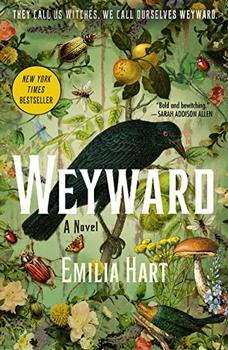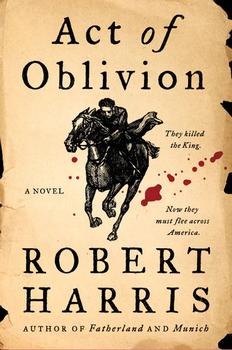Summary | Excerpt | Reading Guide | Reviews | Beyond the book | Read-Alikes | Genres & Themes | Author Bio

A Novel
by James MorrowFrom the book jacket: Jennet Stearne's
father hangs witches for a living in Restoration England. But
when this precocious child witnesses the horrifying death of her
beloved Aunt Isobel, unjustly executed as a sorceress, she makes
it her life's mission to bring down the Parliamentary Witchcraft
Act. A self-educated "natural philosopher," Jennet is inspired
in her quest by a single sentence in a cryptic letter from Isaac
Newton: It so happens that in the Investigations leading
first to my Conjectures concerning Light and later to my System
of the World, I fell upon a pretty Proof that Wicked Spirits
enjoy no essential Existence. Armed with nothing but the
power of reason and her memory of Isobel's love, Jennet cannot
rest until she has put the last witchfinder out of business.
Chock-full with picaresque adventures -- escapades that carry
Jennet from King William's Britain to the fledgling American
Colonies to an uncharted Caribbean island -- our heroine's
search for justice entangles her variously in the machinations
of the Salem Witch Court, the customs of her Algonquin Indian
captors, the designs of a West Indies pirate band, and the
bedsheets of her brilliant lover, the young Ben Franklin.
Finally, in a reckless and courageous ploy, Jennet arranges to
go on trial herself for sorcery, the only way she can defeat the
witchfinders now and forever.
Comment: Set in the 17th-century, The Last Witchfinder
is a richly detailed, cerebral tale narrated by Isaac Newton's
Principia Mathematica (more about this in the sidebar)
that, according to his publisher, took Morrow nine years to
write. It's a book that you're likely to either love or hate.
According to one of the book blurbs, written by Peter Straub
(author of Ghost Story and Shadowland) fans of
Neal Stephenson, John Barth and Thomas Pynchon will enjoy this;
another reviewer compares Morrow to John Barth, and, in the
past, he has been compared to writers such as Kurt Vonnegut and
John Updike.
Most reviewers praise The Last Witchfinder for its humor
and impeccable research. The comment below from the Washington
Post is representative of many:
"James Morrow's novel about early American witchcraft pulls off so many dazzling feats of literary magic that in a different century he'd have been burned at the stake. Forget The Crucible, Arthur Miller's dreary classic. Forget the repugnant kitsch of modern-day Salem. The Last Witchfinder flies us back to that thrilling period when scientific rationalism was dropped into the great cauldron of intellectual history, boiling with prejudice, tradition, piety and fear. The result is a fantastical story mixed so cunningly with real-life details that your vision of America's past may never awaken from Morrow's spell."
However, not all reviews glow so positively, for example, Kirkus
feels that while it is "commendably ambitious ... this intensely
cerebral extravaganza doesn't really work."
If 'intensely cerebral extravaganzas' are your cup of tea, and
you feel you can appreciate a tale of enlightenment and
superstition (from which many might draw parallels with the
modern day) then this might be for you - otherwise, proceed with
caution!
Useful link: Those who have already read the book might
enjoy "The Story in Brief" on
James
Morrow's website, which includes a pithy summary of the
fictional plot alongside real contemporary illustrations.
![]() This review was originally published in The BookBrowse Review in April 2006, and has been updated for the
March 2007 edition.
Click here to go to this issue.
This review was originally published in The BookBrowse Review in April 2006, and has been updated for the
March 2007 edition.
Click here to go to this issue.

If you liked The Last Witchfinder, try these:

by Emilia Hart
Published 2024
Weaving together the stories of three extraordinary women across five centuries, Emilia Hart's Weyward is an enthralling novel of female resilience and the transformative power of the natural world.

by Robert Harris
Published 2023
From the bestselling author of Fatherland, The Ghostwriter, Munich, and Conclave comes this spellbinding historical novel that brilliantly imagines one of the greatest manhunts in history: the search for two Englishmen involved in the killing of King Charles I and the implacable foe on their trail - an epic journey into the wilds of seventeenth-...
Give me the luxuries of life and I will willingly do without the necessities.
Click Here to find out who said this, as well as discovering other famous literary quotes!
Your guide toexceptional books
BookBrowse seeks out and recommends the best in contemporary fiction and nonfiction—books that not only engage and entertain but also deepen our understanding of ourselves and the world around us.